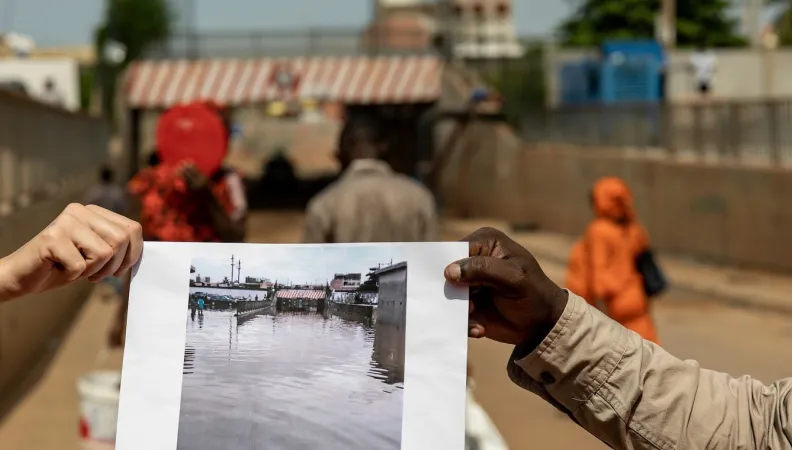Share the page
AFD at COP27: Building Sustainable and Just Development for All
Published on

With the publication of increasingly alarming climate reports and the proliferation of extreme weather events, the search is on for lasting solutions, particularly in the approach to next week’s United Nations Climate Change Conference. But hopes for a breakthrough are circumscribed by continuing geopolitical tensions. Nevertheless, AFD will draw on its expertise and special relationship with the African continent at the conference to provide, propose and promote practical solutions to the mounting challenges.
COP27 will be held from November 6 to 18 in Sharm el-Sheikh, Egypt. With last year’s summit held in Scotland, this year’s venue is a reminder that some of the countries most affected by climate change are in Africa, a fact that is likely to be reflected in the priorities to shape this major international event on the climate and ecological transitions worldwide.
AFD is a longstanding partner of many African countries, where more than half of its operations are based, and it plans to deploy tried-and-tested, co-constructed solutions. “We will be supporting several countries, such as Burkina Faso and Ethiopia, which plan to present their long-term trajectory at COP 27,” says Mathilde Bord-Laurans, Head of AFD’s Climate and Nature Unit.
“We will also be discussing the Adapt’action program, through which we will be working on climate change adaptation issues in 12 African countries.”
See also: Providing €1 Billion for Biodiversity
A number of solutions trialed on the ground in AFD’s African partner countries have already borne fruit: the Great Green Wall in the Sahel, the restoration of coastal areas using natural solutions such as mangroves, the development of agro-ecology, and energy efficiency in buildings.
One of the priority issues awaiting international leaders in Sharm el-Sheikh is “losses and damages”, namely, averting or addressing loss and damage associated with the adverse effects of climate change. Cited in Article 8 of the Paris Agreement, this involves helping developing countries to deal with the effects of climate change that primarily result from the activities of developed countries.
Africa is particularly affected by this issue, as it only contributes 4% of global greenhouse gas emissions, but experiences a large number of its effects, such as drought and its impact on food security.
Following a meeting in the Democratic Republic of the Congo in October, dozens countries across the continent launched a solemn appeal to Western countries to uphold their commitments of financial support at this COP27. “When negotiations are difficult, financial expectations are even greater,” says Mathilde Bord-Laurans.
See also: FICS Research Conference 2022: PDBs & Policy Tips for Decision-Makers
Impatience is growing because the commitment made by wealthy countries in 2009 in Copenhagen to provide US$100 billion in annual climate financing for the most vulnerable countries, is still not being upheld. According to the OECD, despite a 4% increase since 2019, climate financing granted by developed countries amounted to $83.3 billion, well short of the target.
In fact, several low-income countries say declarations of financial support have even been overstated. “The very definition of “climate finance” and its methodology are now being debated,” says Bord-Laurans.
Such shortfalls have not prevented organizations like AFD however, from pressing ahead on several fronts, which will be highlighted in Sharm el-Sheikh.
“We will be addressing the energy transition, which was widely discussed in Glasgow, and we have several projects to present at COP 27, particularly for South Africa.”
In November 2021, South Africa, France, Germany, Great Britain, the US and the European Union announced a partnership which has committed to issuing $8.5 billion in financing, mainly through the public development banks of signatory countries and multilateral programs (CIT).
See also: EU and AFD Group Work Together for a Just Transition in South Africa
Since 2005, AFD has been a pioneering institution that supports the environmental transition of economies and it now plays a key role in implementing the Paris Agreement, signed at COP 21 in 2015.
Since 2017, AFD Group has been fully committed to ensuring its activity is 100% aligned with the Paris Agreement.
In practice, this means that each of AFD’s areas of intervention must be analyzed for consistency in terms of low-carbon, long-term development in partner countries. This commitment complements another of AFD Group’s stated objectives: to ensure that 50% of its annual financing is granted to projects that have a direct and positive impact on the climate.
Watch the interview with Mathilde Bord-Laurans
